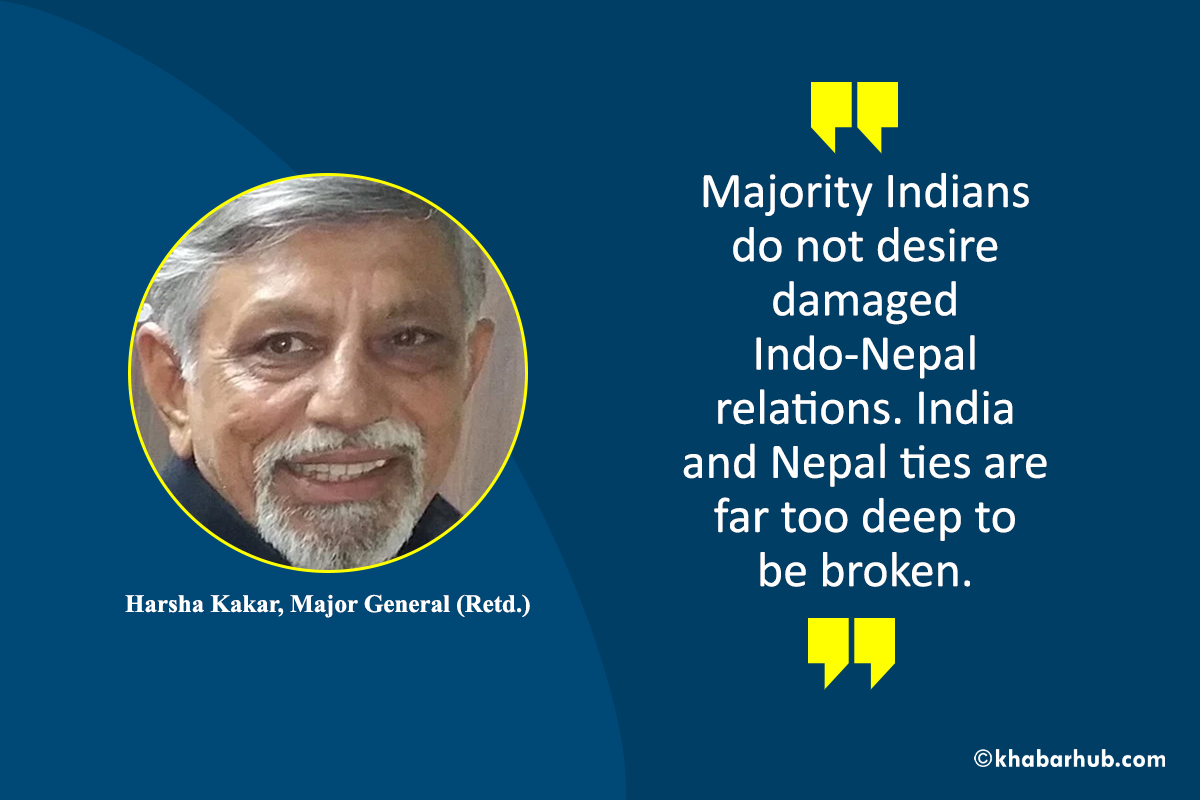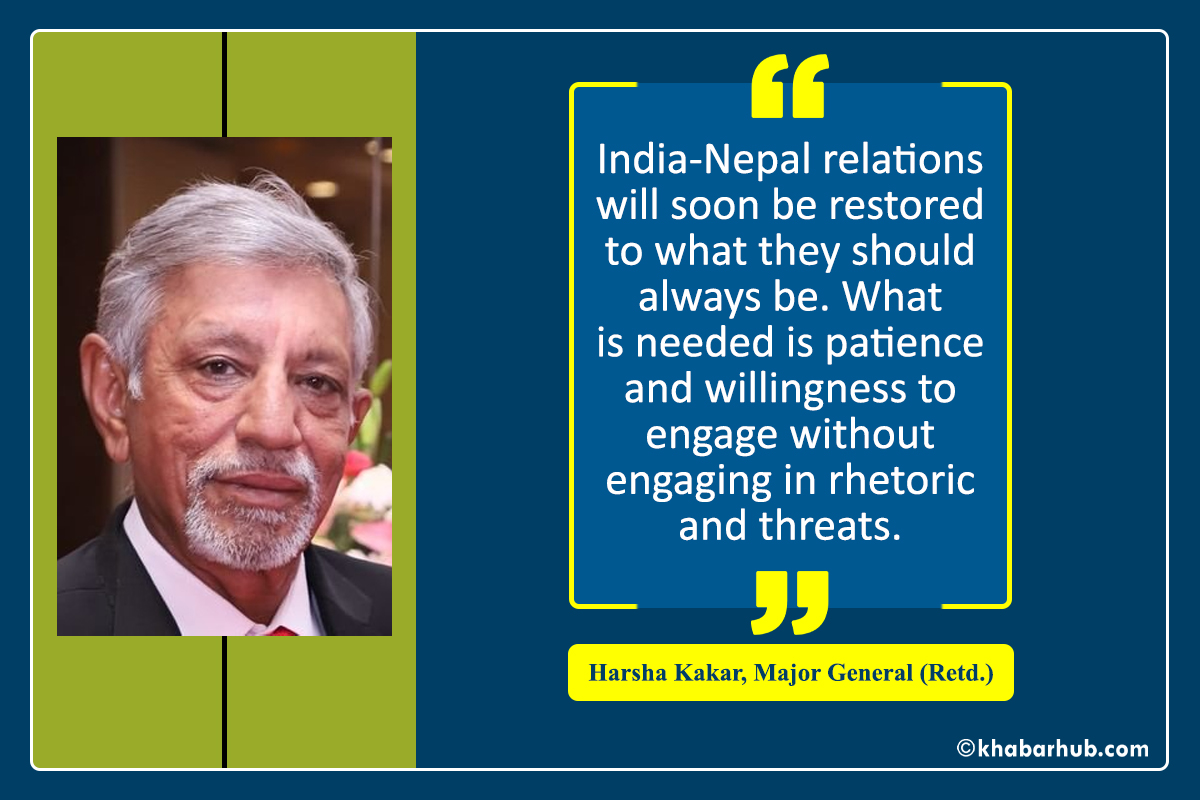On 20th May, the Nepal government officially released a new map, which included Limpiyadhura, Lipulekh and Kalapani within its borders.
It has also tabled a constitutional amendment bill, in parliament, seeking to change Annexure 3 of the Constitution to reflect the new map in Nepal’s national emblem.
This was done after the ruling dispensation managed to secure the support of the main opposition party, the Nepali Congress. It is likely to pass the bill this week.
Simultaneously, Nepal is seeking talks with India on resolving the border issue. The Nepalese spokesperson stated, ‘We are in talks with India to discuss this through diplomatic channels.’ Nepal states that even if the bill is passed, it would not impact dialogue.
India has announced its willingness to discuss the border issue while mentioning that it will not accept any artificial enlargement of the disputed territory.
The take-off point for the latest Indo-Nepal friction was the inauguration of the road from Dharchula to Lipulekh by the defense minister, Rajnath Singh, on 08 May.
The Indian government requested Nepal to refrain from such an ‘unjustified cartographic assertion.’ The Indian MEA spokesperson, Anurag Srivastava stated, ‘India is open to engaging with all its neighbors on the basis of mutual sensitivity and mutual respect, in an environment of trust and confidence.
This is a continuous process and requires constructive and positive efforts.
The take-off point for the latest Indo-Nepal friction was the inauguration of the road from Dharchula to Lipulekh by the defense minister, Rajnath Singh, on 08 May.

Some media houses attempted to link the Indian army chief’s statement on the road to Nepal’s actions, which was wrong. Nepal’s objections had already been announced however the new map had not been released.
A fortnight after Nepal raised its objection, China too objected to the construction of the road, citing changing of status quo, which India ignored.
The Indian road is not new, but the improvement of the existing track used by Mansarovar Yatra pilgrims for a prolonged period. It only reduces their trek of five days into two. Nepal was aware of the construction as it progressed.
India and Nepal share much more than just treaties. There are historical, religious, cultural and economic ties between the two nations. Over 30,000 Nepali citizens serve in India’s Gorkha regiments.
It has occurred in Maldives, Sri Lanka and Bangladesh during the tenures of previous governments. The trend has changed in recent times. It is currently re-emerging in Nepal.
Up to 1.5 million Nepali migrants work in India’s informal economy, while skilled Indians find employment in Nepal. India also pays a pension to 1,25,000 retired Gorkha soldiers and civilian personnel.
It cares for their wellbeing all through their lives. The two nations share an open border that is distinctive in South Asia. The Modi government has adopted two principles, which are ‘priority to neighbors’ and ‘shared prosperity.’
It is not that talks to resolve the border issue were not held earlier. In Jul 2000, talks were held between Atal Bihari Vajpayee and Nepal PM, Girija Prasad Koirala.
A field survey was proposed, a joint boundary committee created. However, not much progress was made. In 2015, when India and China signed an agreement in Beijing to make Lipulekh a trading post, Nepal objected. The Nepalese statement read, ‘The Nepal government is clear about Kalapani being part of Nepal’s territory.’
This is the second time in recent years that Indo-Nepal relations have witnessed a downswing. The first was in 2015 when the border blockade led by the Madhesi movement occurred.
Within Nepal, India was blamed for being behind the blockade, whereas the reality was different. The relationship was recovering when the current stalemate arose.
Both nations should move forward in a positive environment, away from threats, with an open mind and avoiding enhancing nationalism against the other.
There is no doubt that India is looked upon as a big brother by its neighbors, considering its size and economic power. This results in India baiting whenever there is an internal failing or a desire to divert attention.
It has occurred in Maldives, Sri Lanka and Bangladesh during the tenures of previous governments. The trend has changed in recent times. It is currently re-emerging in Nepal.

However, in every case, it has been India which has supported neighboring countries when most needed, including during the current pandemic.
There are reports that the current anti-India bogey in Nepal is aimed to deflect internal failures of the Oli regime. The Oli government was facing a political crisis, with a possible split within its own party.
It was accused of poor governance and failure to control the pandemic. Oli was rescued when the Chinese Ambassador personally led meetings to break the deadlock.
During the pandemic, India has stood by Nepal. It has despatched over 23 tonnes of medicines and medical supplies to the country.
It has even offered to deploy medical teams in case Nepal desired. It has always been the first to respond to any calamity in Nepal, the earthquake which hit it in 2015 being a prime example.
Last week, prominent Indians mass tweeted ‘India Nepal Friendship’, which in no time was the highest trending. Majority Indians do not desire damaged Indo-Nepal relations. India and Nepal ties are far too deep to be broken.
The boundary issue with Nepal needs mature diplomacy from both sides. When Nepal initially requested talks, India responded by suggesting talks, post-COVID 19.
Nepal felt that if India could inaugurate the road during the pandemic, even before it was completed, why is it unwilling for talks by video conferencing.
The Indian perception was talks should be held in person rather than video conferencing, as is the norm in the current era of the pandemic. This differing view has led to a stalemate.
Both nations are aware that they cannot anger the other beyond a point. In an article in the scroll on 19th May, Kamal Mani Dixit and Tika P Dhakal, both analysts and journalists, convey these views when they state, ‘Nepal cannot afford extended standoff with the southern neighbor, and a volatile relationship along the Himalayan rimland negates India’s own attempts at securing itself.’ It is essential that the two nations open dialogue.
India-Nepal relations will soon be restored to what they should always be. What is needed is patience and willingness to engage without engaging in rhetoric and threats.
India has demonstrated its ability to handle border negotiations. Indo-Bangladesh maritime and enclave issues were settled, possibly it could also resolve Indo-Nepal issues.
However, it is difficult for India to enter talks under pressure and threats. Maturity should be paramount. As a start, there should be directions that no officials should comment on the border issue, other than those designated.
Nepalese geographers, Mangal Siddhi Manandhar and Hriday Lal Koirala stated in the June 2001 edition of The Tribhuvan University Journal, ‘Relationship between friends (India and Nepal) should be based on principles of international law and mutual respect for each other’s sensibilities.’
Both nations should move forward in a positive environment, away from threats, with an open mind and avoiding enhancing nationalism against the other.
India is not China which threatens neighbors. On the contrary, it adopts an open and conciliatory approach, especially when the nation has close cultural and historic ties.
India-Nepal relations will soon be restored to what they should always be. What is needed is patience and willingness to engage without engaging in rhetoric and threats.
(The author is a Major General (Retd.) of the Indian Army)
(Views expressed in this article are the author’s own and do not necessarily reflect Khabarhub’s editorial stance).









Comment